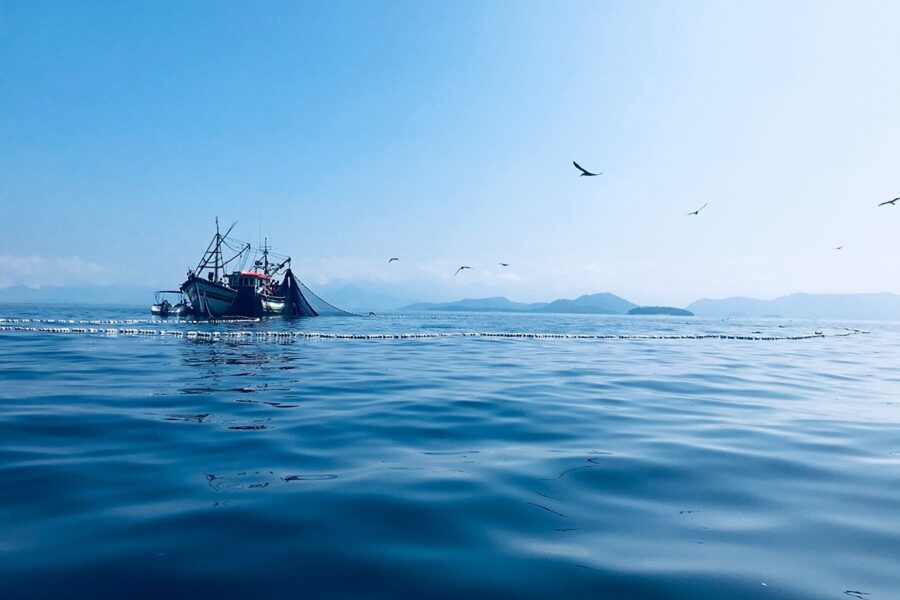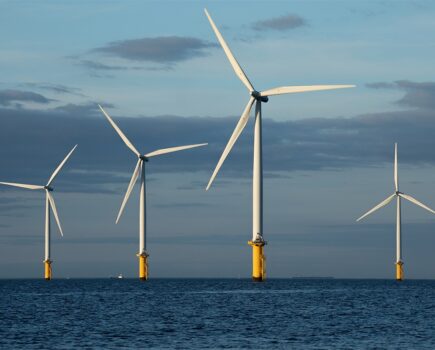EU fishermen have confirmed their intention to take the European Commission to court over moves to ban trawling, longlining and other gears in up to 94 MPAs across EU waters, in areas deeper than 400m.
The areas include a large swathe of waters in the Irish EEZ, as well as waters off France, Portugal and Spain. The Irish government published proposals for its ownlegislationinIrishwaters at the end of July.
The European Bottom Trawling Alliance (EBFA), a grouping of fishermen’s associations from across Europe, supported by the Spanish fishing federation Cepesca, denounced the proposed legislation submitted by the Commission to the European Council.
“The EC is unwilling to give in to us [by scrapping the proposal], even though this decision would be illegal. If this takes place, that will leave us with no choice but to go to court,” Ivan Lopez van de Veen, president of the EBFA, told online news service Undercurrent News.
“It seems like we will have to wait until the end of September to read the act and see what it says,” he added. “We are not here fighting against the main objective of this regulation – protecting vulnerable marine ecosystems – but rather how the EC aims to achieve this.
“If this proposal is pushed through, there will be dire and irreversible consequences for our fleet, which is something we will not tolerate.”
The comments from the EBFA come after the EU Committee on Fisheries and Aquaculture voted on the Commission’s proposal to close vulnerable areas to fishing gears ‘which touch the seabed’. This extends to gears such as longlines as well as trawls.
Virginijus Sinkevičius, commissioner for the environment, oceans and fisheries, said after the vote: “The aim of this measure is to protect vulnerable ecosystems from the impact of bottom gears.“As I have previously announced, this measure is a concrete step under the EU Biodiversity Strategy to limit the use of fishing gears most harmful to biodiversity in EU waters. It shows the European Commission’s commitment to protecting deep-sea species and their fragile habitats, prone to deterioration, but essential to a healthy marine life.
“I know this decision requires a great deal of effort from our fisheries sector, and I would like to acknowledge its essential role in preserving our ocean and our future.”
The president of Cepesca Javier Garat pointed to an agreement reached by the European parliament, Council and Commission back in 2016 to ban trawl fishing if the presence of vulnerable marine ecosystems (VMEs) is demonstrated. “That agreement speaks about banning all trawling ‘below 800m depth, and that stops bottom fishing activity below 400m’ only.
“The EC is exceeding its powers, as its proposal includes depths that do not go between those mentioned, also affecting artisanal fishing in those areas.”
The vote is part of a process towards the passing of binding legislation, with further steps in the process including input of advice from ICES.
Of the 94 potential MPAs, 57 have been identified as ‘most vulnerable’, where restrictions are likely to be strictest. The EFBA has pointed out that the Commission has chosen the most extreme of the four possible scenarios presented to it in designating these areas.
“For all these reasons, we believe there are sufficient arguments to defend our position and for the EC to leave this proposal on standby. Let’s give ICES time to update the available scientific information and then decide,” Javier Garat said.
“This is all we want–a proposal that really protects [VMEs] while avoiding severe socio-economic impact that can cause huge damage to our fishermen in an unjustified and unnecessary way.”
This story was taken from the latest issue of Fishing News. For more up-to-date and in-depth reports on the UK and Irish commercial fishing sector, subscribe to Fishing News here or buy the latest single issue for just £3.30 here.








